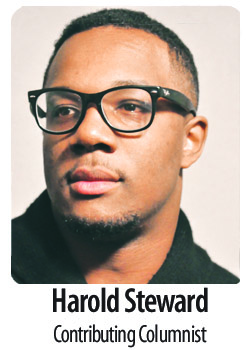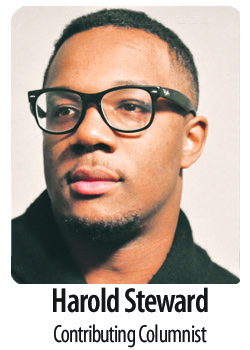Marlon Riggs Film Festival aims to further revive legacy of LGBT people of color in Dallas, which seemed all but forgotten 5 years ago
 A few weeks ago a young woman by the name of Juju contacted me on Facebook and began to inquire about the work of Fahari Arts Institute.
A few weeks ago a young woman by the name of Juju contacted me on Facebook and began to inquire about the work of Fahari Arts Institute.
She asked things like whether there’s a physical address where we regularly offer black queer programs — or whether events like this weekend’s Marlon Riggs Film Festival are just special occasions. She said she has an interest in black history and an eagerness and sense of urgency to involve herself with “the cause.” While it was relatively easy for me to address those questions and offer her some resources, her last question caused me to pause and analyze my life and work in ways that I hadn’t in years.
She asked, “How did you get started doing what you do as it relates to activism?”
I avoided the question for days. I interpret “the cause” as the full liberation of all queer people of color — not only the fight against racism and for racial justice, but for also gender justice and economic justice and against all forms of oppression that queer people of color face in society.
Each time I pondered her question, the image, philosophies and works of Audre Lorde came to mind. Lorde was a feminist, lesbian, writer, warrior and mother who confronted issues of racism in feminist thought and aided a generation of women of color and black gay men in a practice of defining their lives for themselves.
In a 1984 interview in Blacklight, a groundbreaking periodical created by Sidney Brinkley that has covered black LGBT life and events since the ’70s, Lorde stated that, “It’s a struggle, but that is why we exist, so that another generation of lesbians of color will not have to invent themselves, or their history, all over again.”
Reminding myself of this quote provided me with the answer to Juju’s question. My political awakening came out of my introduction to the black queer cultural movement of the late ’70s, which extended through the ’90s.
It was learning about pivotal figures like Audre Lorde, Joseph Beam, Marlon Riggs and Assotto Saint — and realizing the social ills they fought are still present sparked a sense of urgency in me to somehow find the cause and my place within it. It was at first invigorating and exciting but soon led to disappointment.
In 2008, there didn’t appear to be a “cause” that was fully invested in the full liberation of queer people of color in my city — not one that was connected to the rich history and accomplishments of black queer people — even though things like racism, hate crimes, health disparities and poverty still ravish the local black queer community. The most that I could find dealt with the desire for marriage equality, but that cause lacked the participation of people of color, and I myself didn’t feel called to join that particular fight.
Some encouragement came from learning that the cause has not totally passed over Dallas, that in fact people like Alpha Thomas, Linus Spiller and Ajumu formed organizations like Umoja Hermanas and The Ajamu Collective and held trainings, workshops and cultural productions to build community among the local queer community of color, as well as lead protests and engage in other direct actions that brought awareness to racism within that LGBT community and other injustices that queer people of color face in Dallas.
But just as Lorde, Beam, Riggs and Saint had passed away, so had many of the local organizations that were created by and served black queer people and much of their work was unknown to the generations that followed them, and that is still the case for many people today. This began a major shift in my life toward cultural organizing and activism.
Black history as a whole is becoming very limited. More and more black history observations and celebrations focus on a narrow list of individuals and accomplishments that happened within a particular time frame.
Black history taught in our schools is often apolitical and currently being rewritten to erase certain details from even being taught. Black queer history is a concept that many still have trouble fathoming and the subject finds itself in a tenuous place.
But black queer history is an essential part of political and cultural progress for black queer individuals. That is why Fahari Arts Institute exists. Fahari’s work is largely about connecting black queer folks to legacy, memory and the present moment.
This weekend Fahari presents the 4th Annual Marlon Riggs Film Festival — inspired by the work of award-winning Fort Worth activist/filmmaker, the late Marlon Riggs.
These films and this festival are ways we are queering black history month and striving to create a bridge between Audre’s existence and Juju’s desire.
For more information on the Marlon Riggs Film Festival, go to BlaqOutDallas.com.
Harold Steward is artistic director of Fahari Arts Institute and editor-in-chief of BlaqOut Dallas. He can be contacted at info@blaqoutdallas.com.
This article appeared in the Dallas Voice print edition February 15, 2013.

